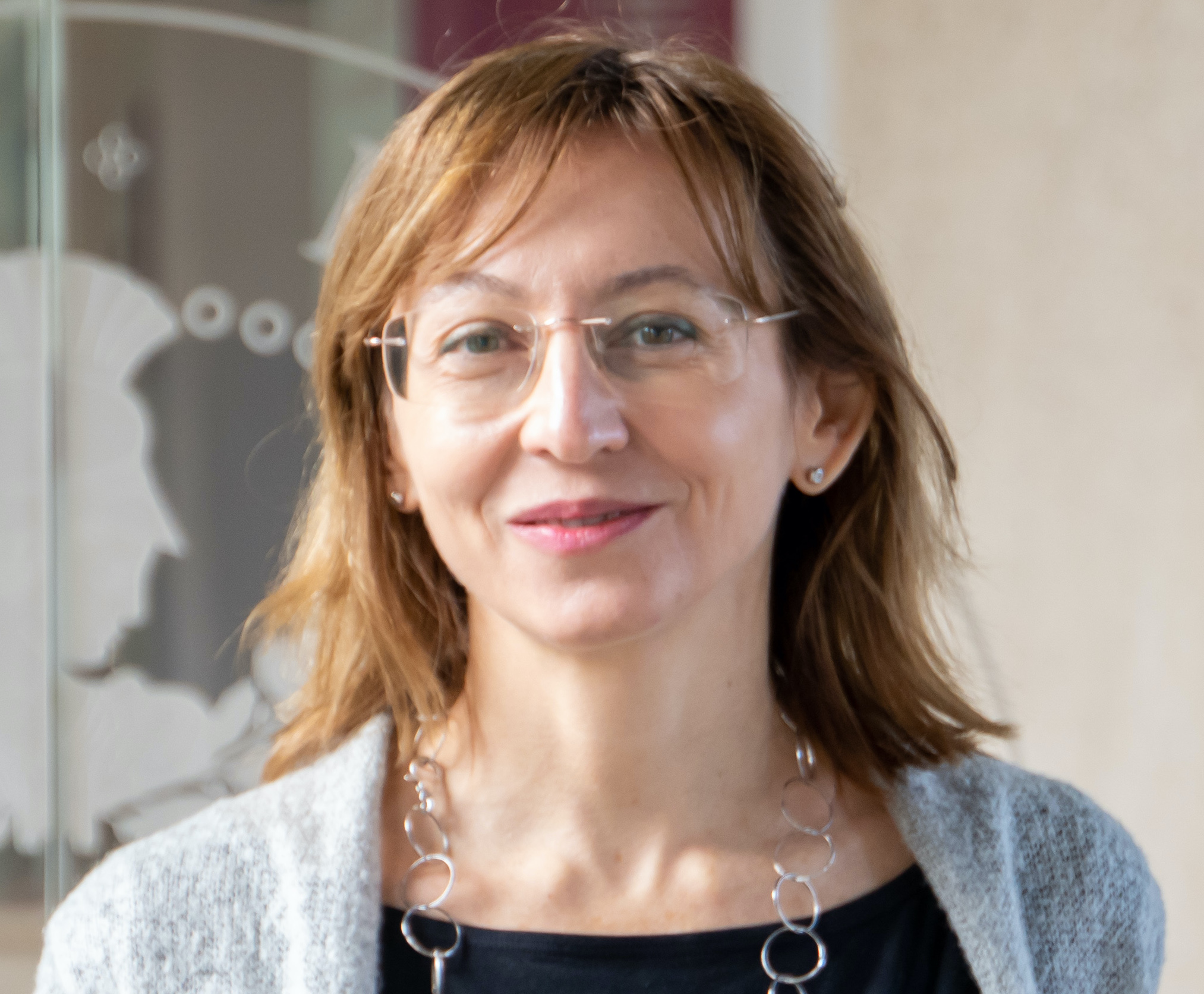Carla Fabiana Chiasserini
Distributed Learning: Recipes for High Performance and Sustainability
Abstract
Machine Learning has become pivotal to many network services and user applications. In this context, distributed learning is emerging as an essential paradigm, due to the need to keep data local as well as to the ever-increasing complexity of the learning tasks and the growing quantity of CPU and memory they require. Relevant examples of distributed learning approaches include Federated Learning and Split Learning. However, distributed learning exhibits some critical issues that need to be addressed in order to guarantee good performance while ensuring sustainability. This talk tackles the above aspects, discussing both the benefits and the challenges posed by distributed learning, and the solutions to minimize the energy cost of this approach while fulfilling the desired decisions quality and meeting the target learning time. In particular, we will present how configuring properly the logical topology of a wireless learning network, compressing machine learning models, and orchestrating the available network and computing resources can help cope with both sustainability and learning performance.About the speaker
 Carla Fabiana Chiasserini is Full Professor at Politecnico di Torino, Italy, and a Research Associate with the Italian National Research Council (CNR) and the National Inter-University Consortium for Telecommunications (CNIT). She was a Visiting Researcher at UC San Diego (1998-2003), and a Visiting Professor at Monash University (2012 and 2016) and at the Berlin Technische Universität (2021 and 2022). She is a Fellow of the IEEE and a Senior Member of ACM. Her research interests include NextG Networks, Edge Computing, Networking for Machine Learning, and Connected Vehicles. She has published over 350 journal articles and referred conference papers, and she has received several awards for her scientific work. Currently, she serves as Editor-in-Chief of the Computer Communications journal and as Editor-at-Large of the IEEE/ACM Transactions on Networking. Carla is also a member of the Steering Committee of the IEEE Transactions on Network Science and Engineering and of the ACM Mobihoc conference. She has served for several years on the Editorial Board of such journals as the IEEE Transactions on Wireless Networks and the IEEE Transactions on Mobile Computing, and she has been Co-Guest Editor of a number of journal special issues. Carla is/has been involved in many national and international research projects, either as a coordinator or a PI. For more information, please refer to: det.polito.it/carla.chiasserini
Carla Fabiana Chiasserini is Full Professor at Politecnico di Torino, Italy, and a Research Associate with the Italian National Research Council (CNR) and the National Inter-University Consortium for Telecommunications (CNIT). She was a Visiting Researcher at UC San Diego (1998-2003), and a Visiting Professor at Monash University (2012 and 2016) and at the Berlin Technische Universität (2021 and 2022). She is a Fellow of the IEEE and a Senior Member of ACM. Her research interests include NextG Networks, Edge Computing, Networking for Machine Learning, and Connected Vehicles. She has published over 350 journal articles and referred conference papers, and she has received several awards for her scientific work. Currently, she serves as Editor-in-Chief of the Computer Communications journal and as Editor-at-Large of the IEEE/ACM Transactions on Networking. Carla is also a member of the Steering Committee of the IEEE Transactions on Network Science and Engineering and of the ACM Mobihoc conference. She has served for several years on the Editorial Board of such journals as the IEEE Transactions on Wireless Networks and the IEEE Transactions on Mobile Computing, and she has been Co-Guest Editor of a number of journal special issues. Carla is/has been involved in many national and international research projects, either as a coordinator or a PI. For more information, please refer to: det.polito.it/carla.chiasserini
Deniz Gündüz
On-Demand Intelligence at the Wireless Edge
Abstract
The sixth generation (6G) of mobile networks is expected to facilitate the convergence of machine learning (ML) and artificial intelligence (AI) algorithms with communication and networking technologies. 6G networks will increasingly benefit from ML/AI tools to push their performance limits, and in turn, will enable ubiquitous deployment of ML/AI applications at the network edge. We will start this talk by presenting several recent examples of ML-aided communication and networking algorithms that enjoy striking performance improvements over well-established benchmarks. Then, we will focus on efficient training and “on-demand” delivery of ML models over time-varying wireless networks. Finally, we will talk about the emerging “semantic” or goal-oriented communication paradigm, where communication networks are designed to extract and deliver the minimal amount of information required for the desired task.About the speaker
 Deniz Gündüz received his Ph.D. degree in electrical engineering from NYU Tandon School of Engineering (formerly Polytechnic University) in 2007. Following his PhD, he served as a postdoctoral research associate at Princeton University, as a consulting assistant professor at Stanford University, and as a research associate at CTTC in Barcelona, Spain. ln Sep. 2012, he joined the Electrical and Electronic Engineering Department of Imperial College London, UK, where he is currently a Professor of Information Processing, and serves as the deputy head of the Intelligent Systems and Networks Group. In the past, he also held positions at the University of Modena and Reggio Emilia, University of Padova and Princeton University. His research interests lie in the areas of communications and information theory, machine learning, and privacy. Dr. Gündüz is a Fellow of the IEEE, and a Distinguished Lecturer for the IEEE Information Theory Society (2020-22). He served in various editorial roles for the IEEE Transactions on Information Theory, IEEE Transactions on Communications, IEEE Journal on Selected Areas in Communications (JSAC), and IEEE Transactions on Wireless Communications. He is the recipient of the IEEE Communications Society - Communication Theory Technical Committee (CTTC) Early Achievement Award in 2017, a Starting Grant of the European Research Council (ERC) in 2016, a Consolidator Grant of ERC in 2022, and several best paper awards. For more information, please refer to: imperial.ac.uk/d.gunduz
Deniz Gündüz received his Ph.D. degree in electrical engineering from NYU Tandon School of Engineering (formerly Polytechnic University) in 2007. Following his PhD, he served as a postdoctoral research associate at Princeton University, as a consulting assistant professor at Stanford University, and as a research associate at CTTC in Barcelona, Spain. ln Sep. 2012, he joined the Electrical and Electronic Engineering Department of Imperial College London, UK, where he is currently a Professor of Information Processing, and serves as the deputy head of the Intelligent Systems and Networks Group. In the past, he also held positions at the University of Modena and Reggio Emilia, University of Padova and Princeton University. His research interests lie in the areas of communications and information theory, machine learning, and privacy. Dr. Gündüz is a Fellow of the IEEE, and a Distinguished Lecturer for the IEEE Information Theory Society (2020-22). He served in various editorial roles for the IEEE Transactions on Information Theory, IEEE Transactions on Communications, IEEE Journal on Selected Areas in Communications (JSAC), and IEEE Transactions on Wireless Communications. He is the recipient of the IEEE Communications Society - Communication Theory Technical Committee (CTTC) Early Achievement Award in 2017, a Starting Grant of the European Research Council (ERC) in 2016, a Consolidator Grant of ERC in 2022, and several best paper awards. For more information, please refer to: imperial.ac.uk/d.gunduz